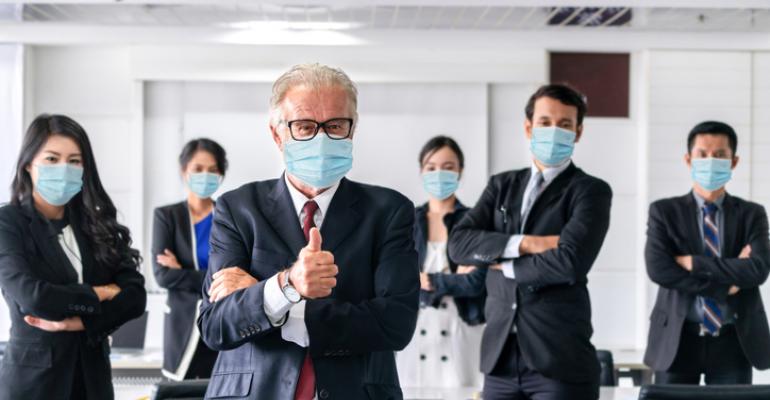Over the past few weeks, drive-in tourism had begun to pick up around the country, providing the hotel industry with much-needed business after four months of coronavirus kept people from traveling for leisure and business alike.
But that trend has not just stalled but actually reversed, particularly in the southern and western regions of the country. For instance, hotel demand fell by 16 percent in South Carolina and 10 percent in Arizona over the past two weeks, according to STR (formerly Smith Travel Research). “The sharp increase in COVID-19 cases has had, and will have, an impact on leisure demand,” Jan Freitag, senior vice president at STR, said this week.
“But what is even more worrisome are the negative implications that the higher case count could have for corporate travel policies after Labor Day, when the traditional meeting season starts,” Freitag added.
To prevent what could be a disastrous meeting season—where organizations decide to not even hold smaller drive-in meetings as a first step towards normalcy—the biggest members of the American Hotel & Lodging Association chose to present a unified front on mask-wearing by employees and guests alike. As a result, everyone who comes into an AHLA-member hotel must wear a face covering for the foreseeable future, regardless of whether state or local law requires it.
“Utilizing best practices, including requiring face coverings and practicing social distancing in public spaces, will create an even safer environment for all our guests and employees,” said Chip Rogers, president and CEO of AHLA. “We applaud governors who have standardized the use of face coverings in all indoor public spaces and we urge all lawmakers to help make this a national standard by implementing this requirement in their states. These preventative measures make it safer and easier for Americans to travel while also supporting hotel and tourism employees.”
Further, the CEOs of several major hotel companies made statements in support of the AHLA decision:
Chris Nassetta, president and CEO, Hilton: “We are supportive of the industry adopting consistent guidelines and practices that adhere to public health guidelines, including the wearing of face coverings indoors and in public areas.”
Mark Hoplamazian, president & CEO, Hyatt: “We require face coverings for hotel guests across the U.S. and Canada in order to care for the health and safety of our guests and colleagues. To help enable safe travel we need to come together as an industry and promote clear guidelines, which for the foreseeable future includes the wearing of face coverings in indoor public spaces and practicing social distancing.”
Elie Maalouf, CEO, Americas, IHG: “It is critical we take action to protect the health and safety of guests and colleagues to build confidence in travel as the industry begins to recover. Requiring face coverings in all indoor public spaces across our industry will help create an even safer environment for all travelers and front-line hotel colleagues.”
Jonathan Tisch, chairman & CEO, Loews Hotels: “As hotel operators and owners, we have a role and responsibility to provide a welcoming, safe, and comfortable environment, and now more than ever we need to ensure we are exceeding expectations in this area.”
Arne Sorenson, CEO, Marriott International: “Part of our Commitment to Clean program is that we’re redefining our cleaning and safety standards to align with evolving expert protocols. Health guidance is clear on wearing masks and it is a simple step everyone can take when in public spaces of hotels to protect themselves and each other.”
Jim Alderman, CEO Americas, Radisson Hotel Group: “One of the easiest ways to help slow the transmission of COVID-19 is by wearing a face covering, especially indoors. It’s going to take all of us working together, which is why we stand alongside AHLA in asking our government leaders to help make this a national standard by implementing this requirement in their states.”
Geoff Ballotti, president and CEO, Wyndham Hotels & Resorts: “We all must play a role in slowing the spread of COVID-19, and encouraging the adoption of these guidelines is an important and meaningful step for us to take together.”





